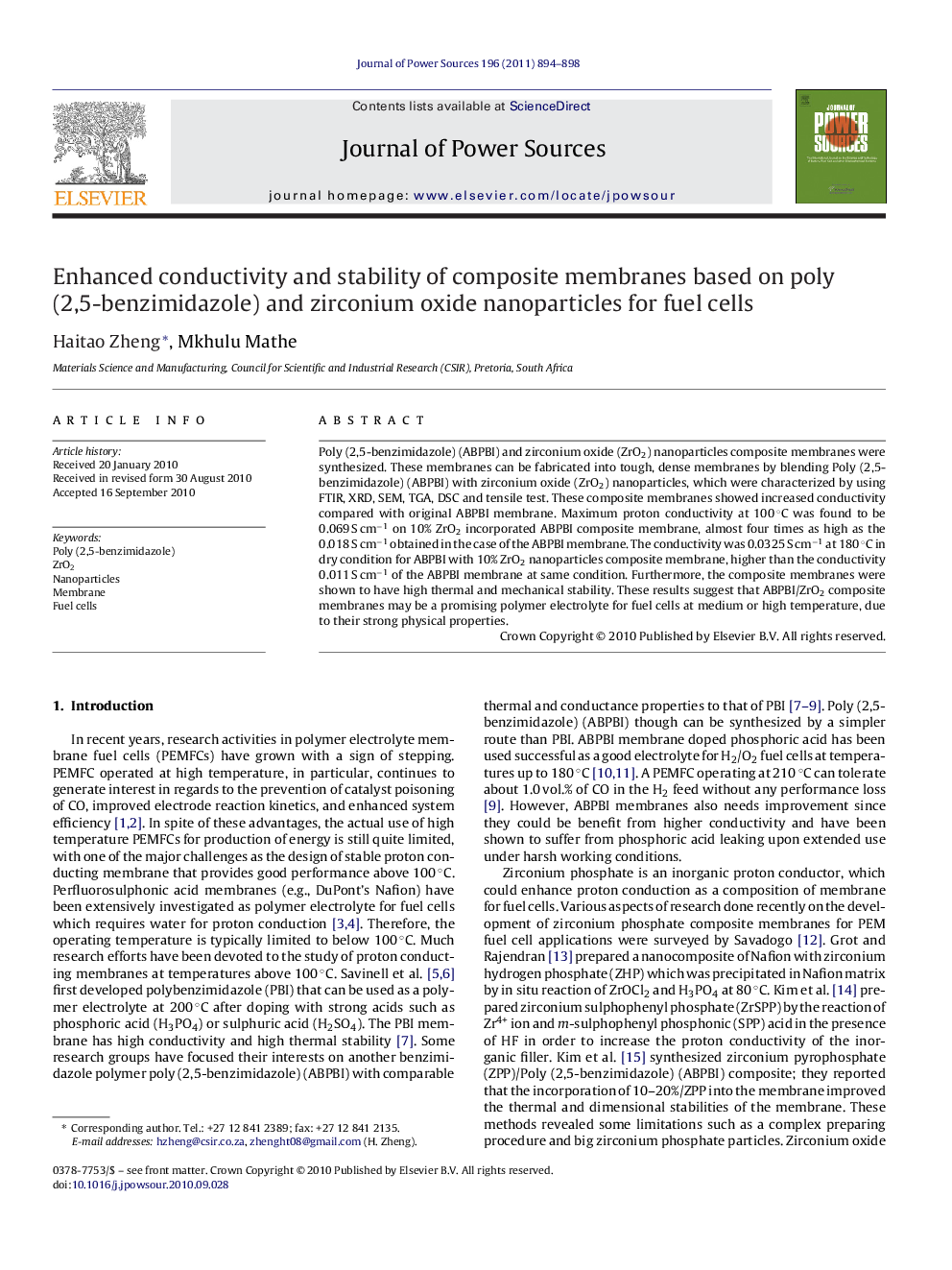| Article ID | Journal | Published Year | Pages | File Type |
|---|---|---|---|---|
| 1289567 | Journal of Power Sources | 2011 | 5 Pages |
Poly (2,5-benzimidazole) (ABPBI) and zirconium oxide (ZrO2) nanoparticles composite membranes were synthesized. These membranes can be fabricated into tough, dense membranes by blending Poly (2,5-benzimidazole) (ABPBI) with zirconium oxide (ZrO2) nanoparticles, which were characterized by using FTIR, XRD, SEM, TGA, DSC and tensile test. These composite membranes showed increased conductivity compared with original ABPBI membrane. Maximum proton conductivity at 100 °C was found to be 0.069 S cm−1 on 10% ZrO2 incorporated ABPBI composite membrane, almost four times as high as the 0.018 S cm−1 obtained in the case of the ABPBI membrane. The conductivity was 0.0325 S cm−1 at 180 °C in dry condition for ABPBI with 10% ZrO2 nanoparticles composite membrane, higher than the conductivity 0.011 S cm−1 of the ABPBI membrane at same condition. Furthermore, the composite membranes were shown to have high thermal and mechanical stability. These results suggest that ABPBI/ZrO2 composite membranes may be a promising polymer electrolyte for fuel cells at medium or high temperature, due to their strong physical properties.
